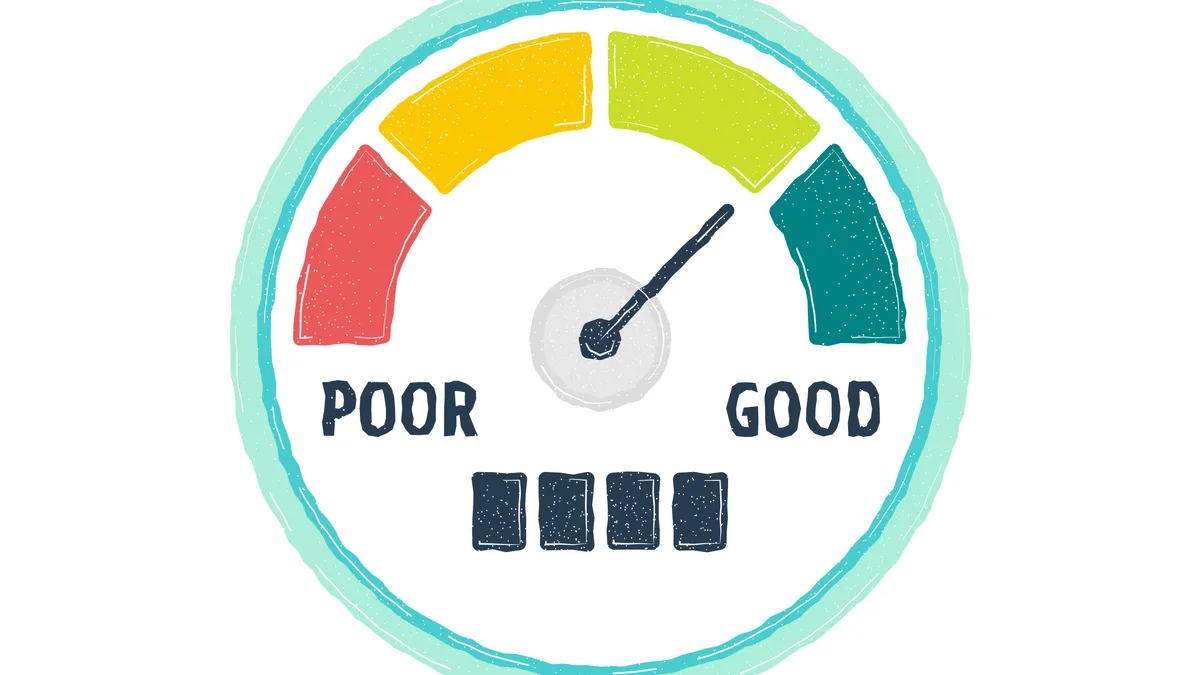

Finance
How Bad Can A Repo Hurt Your Credit
Published: January 4, 2024
Discover the impact of repossession on your credit score and financial health. Learn how a repo can harm your credit and find ways to mitigate the damage.
(Many of the links in this article redirect to a specific reviewed product. Your purchase of these products through affiliate links helps to generate commission for LiveWell, at no extra cost. Learn more)
Table of Contents
Introduction
When it comes to managing your finances, keeping a good credit score is crucial. Your credit score determines whether you can secure loans, get favorable interest rates, or even rent an apartment. However, certain financial setbacks such as having a repossession can significantly impact your credit standing.
A repo, short for repossession, occurs when you fail to make payments on a financed asset such as a car or property. In such cases, the lender has the right to take possession of the asset to recoup their losses. While repos may seem like a convenient solution for lenders, they can have lasting consequences on your credit.
In this article, we will explore the potential impact a repo can have on your credit score. We will also discuss the duration of the repo’s effect, the factors that influence the severity of the impact, and steps you can take to minimize the damage and rebuild your credit.
Understanding the implications of a repo is essential for anyone who has faced or may potentially face a similar financial challenge. By having a clear understanding of the situation, you can make informed decisions to protect your credit standing and work towards financial stability.
What is a Repo?
A repo, short for repossession, refers to the process where a lender takes possession of an asset that was financed but the borrower has failed to make timely payments on. This typically occurs with assets such as cars, motorcycles, boats, or even real estate properties.
When you finance an asset, you enter into a legal agreement with a lender in which you agree to make regular payments over a specified period. These payments consist of both the principal amount borrowed and the interest charged by the lender. However, when you fail to make these payments as agreed upon, the lender has the right to repossess the asset.
Repossession can happen in a few different ways. In some cases, the lender may have a provision in the financing agreement that allows them to repossess the asset as soon as you miss a payment. This is known as an “acceleration clause.” In other cases, the lender may need to follow a legal process to reclaim the asset, which may involve notifying you of your missed payments and allowing you the opportunity to catch up. Ultimately, if you are unable to rectify the missed payments, the lender will proceed with the repossession.
Once the lender takes possession of the asset, they will typically sell it to recover their losses. The proceeds from the sale will be used to pay off the remaining balance on the loan, including any fees or penalties incurred due to the default. If the sale of the asset does not cover the full outstanding balance, you may still be responsible for the remaining debt.
It’s important to note that repossession laws can vary by jurisdiction and by the type of asset being financed. It’s crucial to familiarize yourself with the specific laws and regulations in your region to understand your rights and obligations in the event of a repo.
How Does a Repo Impact Your Credit?
A repo can have a significant impact on your credit score and overall creditworthiness. When a lender repossesses an asset due to missed payments or default, they report the repossession to credit reporting agencies. This information is then included in your credit report and can have several negative effects on your credit standing.
Firstly, a repo will result in a significant drop in your credit score. The exact impact can vary depending on your overall credit history, the severity of the missed payments, and the length of time it took for the repossession to occur. However, it is not uncommon for a repo to lower your credit score by 100 points or more.
Furthermore, having a repo on your credit report indicates to lenders and creditors that you have a history of financial instability and may be a higher risk borrower. This can make it challenging to secure new credit, such as loans or credit cards, in the future. If you are approved for credit, you may face higher interest rates and less favorable terms due to the repo on your record.
In addition to the impact on your credit score, a repo can remain on your credit report for several years. The exact duration can vary depending on the credit reporting agency, but it is typically around seven years. During this time, lenders and potential creditors will be able to see the repo, which may hinder your ability to obtain new credit or secure favorable terms.
It’s important to note that a repo does not solely impact your credit score. It also has the potential to affect other areas of your financial life, such as insurance rates, employment opportunities, and even your ability to rent an apartment. Some insurance companies may consider a repo as a sign of financial instability and may charge higher insurance premiums. Certain employers may also review credit histories as part of the hiring process, and a repo may raise concerns about your responsibility and reliability. Additionally, landlords may view a repo as a red flag and be hesitant to approve your rental application.
Overall, the impact of a repo on your credit is significant and can have far-reaching consequences. It’s crucial to understand the potential ramifications and take proactive steps to minimize the damage and rebuild your credit.
Duration of Repo Impact on Credit
The impact of a repo on your credit report is not permanent, but it can have a lasting effect. Generally, a repo will remain on your credit report for a period of seven years. During this time, lenders and creditors will be able to see the repo when assessing your creditworthiness.
It’s important to note that the severity of the repo’s impact on your credit score may lessen over time. As the repo moves further into the past, its weight on your credit score may diminish. However, this is not to say that the repo will have no impact at all. It will still be visible to lenders and may affect their decision-making process when considering your credit applications.
The impact of a repo on your credit can vary depending on the other information in your credit report. If you have a history of positive credit behavior, such as making on-time payments and keeping your credit utilization low, the impact of the repo may be somewhat mitigated. Conversely, if you have a limited credit history or other negative information on your credit report, the repo may have a more significant impact.
It’s worth noting that some credit reporting agencies may provide the option to remove a repo from your credit report before the seven-year timeframe expires. This typically requires negotiating with the lender and reaching an agreement to have the repo removed from your credit history. However, this is not a guaranteed option, and it may require assistance from credit professionals or legal counsel.
As the repo ages on your credit report, it’s important to focus on improving your overall credit profile. By demonstrating responsible credit behavior over time, such as making on-time payments, reducing your debt, and utilizing credit responsibly, you can gradually rebuild your creditworthiness. While the repo may still be visible to lenders, showcasing positive financial habits can help offset its impact and improve your chances of obtaining credit in the future.
Remember, patience and perseverance are key when it comes to recovering from a repo. It may take time to rebuild your credit, but with dedication and smart financial choices, you can improve your creditworthiness and regain financial stability.
Factors That Influence the Severity of Repo Impact on Credit
The severity of the impact a repo has on your credit can vary depending on a few key factors. Understanding these factors can help you assess the potential consequences and take appropriate measures to minimize the damage.
1. Timing and Frequency: The timing and frequency of the repo can play a significant role in its impact on your credit. If the repo occurred recently, it may have a more substantial negative effect compared to a repo that happened several years ago. Similarly, multiple repossessions within a short period can further worsen the impact.
2. Credit History: Your credit history serves as the context for the repo’s impact. If you have a long-established history of responsible credit behavior, such as making on-time payments and maintaining a low credit utilization ratio, the repo’s impact may be relatively less severe. On the other hand, if you have a limited or troubled credit history, the repo could have a more significant impact.
3. Other Negative Information: A repo is not the only negative information that lenders consider when assessing your creditworthiness. If you have other negative factors on your credit report, such as bankruptcy, collection accounts, or late payments on other loans, the combined effect can compound the severity of the repo’s impact.
4. Remaining Debt: If the sale of the repossessed asset does not cover the full outstanding balance on the loan, you may still be responsible for the remaining debt. This unpaid debt can further harm your credit and make it more challenging to recover from the repo’s impact. It’s essential to address any residual debt and work towards settling it.
5. Post-Repo Credit Behavior: How you manage your credit after a repo can influence the severity of its impact over time. If you demonstrate responsible credit behavior, such as making on-time payments, reducing debt, and using credit responsibly, you can slowly rebuild your creditworthiness. In contrast, if you continue to exhibit negative credit behavior or accumulate additional delinquencies, the repo’s impact may be prolonged.
6. Financial Stability: Lenders and creditors assess your overall financial stability when evaluating your creditworthiness. If you can demonstrate stability in other areas of your financial life, such as a steady income, minimal outstanding debt, and a well-managed budget, it can help offset the negative impact of the repo.
It’s important to remember that while these factors can influence the severity of the repo’s impact on your credit, they do not determine it entirely. Each individual’s credit situation is unique, and other variables may come into play. By being proactive about managing your credit and taking steps to improve your financial health, you can reduce the long-term impact of a repo and rebuild your creditworthiness.
How to Minimize the Damage from a Repo
While a repo can have a significant impact on your credit, there are steps you can take to minimize the damage and protect your financial standing. Here are some strategies to consider:
1. Communicate with the Lender: If you find yourself in a situation where you are unable to make payments on time, it is crucial to communicate with the lender. Reach out to them as soon as possible and explain your financial difficulties. In some cases, the lender may be willing to work out a new payment plan or provide temporary relief to help you catch up on payments and avoid repossession.
2. Consider Voluntary Repossession: If you realize that repossession is inevitable, you may want to consider voluntary repossession. With voluntary repossession, you return the asset to the lender rather than waiting for them to initiate the repossession process. While it does not eliminate the negative impact on your credit, it may reflect more favorably to future lenders by showing that you took responsibility instead of forcing the lender to pursue repossession.
3. Review the Documentation: It’s essential to carefully review the repossession notice and any other documents related to the repo. Ensure that all the information is accurate and that you fully understand your rights and responsibilities. If you believe there are errors or discrepancies, consider seeking legal advice to address the situation properly.
4. Focus on Rebuilding Credit: After a repo, it’s crucial to focus on rebuilding your credit. Start by paying all your other bills and debts on time to demonstrate responsible credit behavior. Consider obtaining a secured credit card or a credit builder loan to establish positive payment history. Remember, each positive action you take will help to gradually improve your creditworthiness.
5. Monitor Your Credit: Regularly check your credit report to ensure that it accurately reflects your financial situation. Look for any errors or discrepancies related to the repo. Dispute inaccurate information with the credit reporting agencies and provide supporting documentation to have it corrected or removed.
6. Seek Professional Guidance: If you are struggling to navigate the aftermath of a repo, consider seeking assistance from credit counseling agencies or financial advisors with expertise in credit repair. They can provide guidance and support in creating a personalized plan to rebuild your credit and regain financial stability.
Remember, minimizing the damage from a repo takes time and effort. By taking proactive steps to address the situation and being consistent in your credit rebuilding efforts, you can gradually improve your creditworthiness and move towards a more secure financial future.
Steps to Rebuild Your Credit After a Repo
Recovering from a repo and rebuilding your credit may take time and effort, but it is possible. Here are some steps you can take to gradually improve your creditworthiness:
1. Review Your Credit Report: Start by obtaining a copy of your credit report from all three major credit bureaus (Equifax, Experian, and TransUnion). Review the report carefully to ensure that all information is accurate and up-to-date.
2. Dispute Inaccurate Information: If you find any errors or inaccuracies on your credit report related to the repo, dispute them with the credit reporting agencies. Provide any supporting documentation to substantiate your claim and have the inaccurate information corrected or removed.
3. Pay Your Bills on Time: Consistently making on-time payments is crucial for rebuilding your credit. Pay all your bills, including credit card bills, utility bills, and loan payments, by the due date. This demonstrates responsible financial behavior and improves your payment history.
4. Manage Your Debt: Reduce your overall debt to improve your credit utilization ratio. Aim to keep your credit card balances low, ideally below 30% of your available credit limit. Consider creating a budget to prioritize paying off existing debts while avoiding accumulating new ones.
5. Establish New Credit: If you don’t already have open lines of credit, you may want to consider applying for a secured credit card. With a secured card, you provide a deposit that serves as collateral, reducing the risk for the lender. Use the card responsibly by making small purchases and paying the balance in full each month to build positive payment history.
6. Consider Credit Builder Loans: Credit builder loans are specifically designed to help individuals rebuild their credit. These loans require you to make regular payments over a specified period. Once the loan is fully repaid, you receive the loan funds. Regular, timely payments on the credit builder loan can help improve your creditworthiness.
7. Maintain Stability: Lenders and creditors look for stability when assessing creditworthiness. Maintain a steady income, avoid frequent changes in employment or residence, and establish a financial safety net by building an emergency fund. This demonstrates your ability to manage your finances responsibly.
8. Monitor Your Credit: Stay vigilant by regularly monitoring your credit report and score. This allows you to track your progress, identify any issues, and address them promptly. There are various free credit monitoring tools available that can help you keep a close eye on changes to your credit profile.
9. Be Patient and Persistent: Rebuilding your credit takes time, so be patient with the process. Consistently following these steps and maintaining responsible financial habits will gradually improve your credit score. Remember that each positive action you take contributes to your overall creditworthiness.
10. Seek Professional Help: If you’re feeling overwhelmed or need further guidance, consider working with credit counseling agencies or financial advisors who specialize in credit repair. They can provide personalized advice and support to help you navigate the credit rebuilding process.
Rebuilding your credit after a repo may seem challenging, but with determination and discipline, you can regain your financial footing. Stay committed to improving your credit and financial habits, and in time, you’ll see the positive impact on your creditworthiness.
Conclusion
A repo can have a significant impact on your credit score and overall creditworthiness, but it does not have to define your financial future. By understanding the implications of a repo, taking proactive steps to minimize the damage, and implementing strategies to rebuild your credit, you can regain financial stability.
It’s important to remember that the impact of a repo on your credit is not permanent. While the repo may remain on your credit report for several years, its severity will gradually lessen over time, especially when accompanied by responsible credit behavior.
To minimize the damage from a repo, communicate with your lender, consider voluntary repossession if necessary, and review the documentation related to the repo to ensure accuracy. Focus on rebuilding your credit by paying your bills on time, managing your debt, and establishing new credit responsibly.
Monitor your credit regularly and dispute any inaccuracies that may arise. Maintaining stability in your financial life and being patient throughout the credit rebuilding process are also essential factors in restoring your creditworthiness.
Remember, recovering from a repo takes time, effort, and a commitment to responsible financial management. Seek guidance from credit counseling agencies or financial advisors if needed, and stay positive and persistent in your credit rebuilding journey.
By following these steps, you can rebuild your credit after a repo and position yourself for a brighter financial future.














